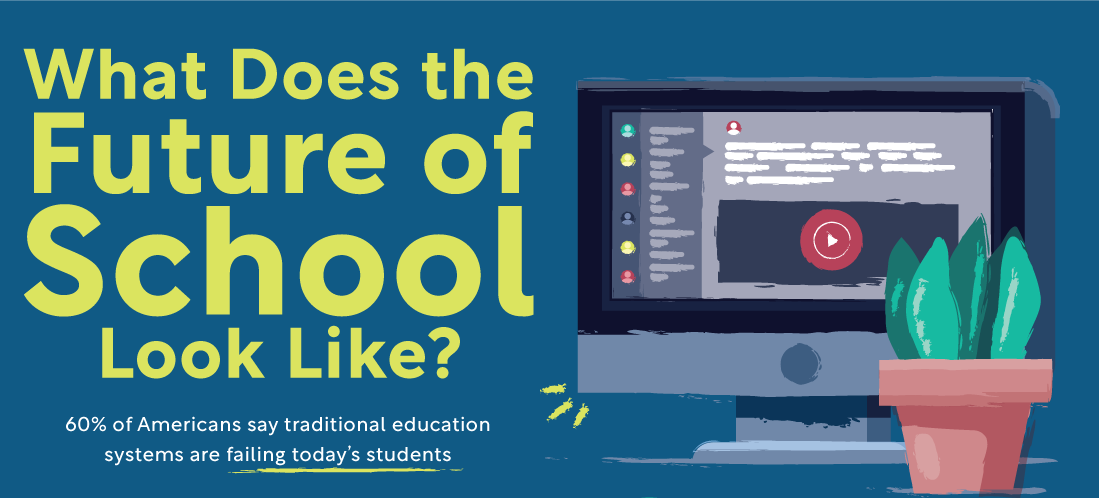A Look at the Future of School

Several studies online suggest that the educational landscape is on the road to change that emphasizes online community, greater flexibility, and creating safe environments. Specifically in the United States of America, more than 6 million students are “chronically absent” each year while teenagers specifically are five times more likely to experience mental illness than teenagers generations before. In fact, only 19% of Americans up to the age of 45 can pass a multiple choice test with questions taken from the United States Citizenship Test.
Nowadays, 57% of students are more accepting of online schooling, especially in a post-pandemic world. Only 19% of teenagers prefer in-person school. Many families are choosing online education because it offers a more flexible schedule, safer environment, and greater ability to avoid bullying.
There are also several advantages of learning online for students. Online learning helps students retain 25% to 60% more information than in a traditional school setting. Studies have shown that online learning takes 40% to 60% less time than traditional formats as well, making it more time effective.
The constant development of technology requires people to continuously learn new skill sets. By 2022, the most in-demand job skills will most likely include analytical thinking, innovation, creativity, and originality. As such, understanding the relationship between facts, questioning the things around us, and being able to switch methods to overcome new challenges will be crucial in achieving success. Project-based learning is important in developing these skills seeing as students engaged in hands-on learning were 1.5 times less likely to fail and instead are able to improve their scores by 6%, which can lead to a higher graduation rate, increased motivation, greater persistence in college, and better teacher/student interactions.
Grades have shown to limit learning in schools as students tend to put in just enough effort to earn the grade they want without really focusing on learning the material. Descriptive feedback instead has better enhanced students’ learning by helping to focus students on areas that are in most need of improvement, motivating students by their own desire to learn, and encouraging self-reflection to bring more meaning to learning. Mentorship in school proves to be useful for students as well. When students receive proper mentorship, college enrollment rates and educational aspirations increase, healthier relationships and lifestyle choices are made, stronger relationships with others are created, and self-esteem is enhanced.
Online schooling could become the new future of school.












Responses